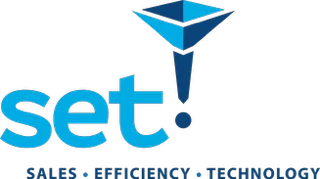26/07/2024 0 Comments
Cost precedes revenue. But to what ratio?
Many visitors in Amsterdam will have seen the text “De Cost gaet voor de Baet Uyt” written on the cornice of a historic former trade registrar building near Central Station.
An old Dutch wisdom - freely translated as “cost precedes revenue” - referring to the need to invest before you can reap financial rewards. And at the same time encouraging the productive use of available funds.
This wisdom may well have originated in the Golden Age, when collaborative and collective efforts produced massive wealth, requiring meticulous bookkeeping down to the penny. In the Golden Age, the after-the-fact relationship between “Cost” and “Baet” (revenue/profitability) was perfectly clear.
Business Development costs, do you know what they are?
When it comes to the cost of Business Development, this Golden Age consciousness seems to be lost today. In the 25 years or so that I have been in Business Development roles in industries with a long business development cycle, we always knew that Sales was expensive, but we rarely had a precise calculation of a sales budget.
Sure enough, management would look at the overall cost of the business development staff: their salaries, bonuses and perks of sales execs, sales managers and maybe that of bid managers or solution developers.
But hardly ever did I see figures that included all the expert staff hat a sales executive would drag into the pursuit. The operational experts, technical experts, the telco guys, the recruitment specialists, the trainers, project managers and all those other none-busdev colleagues whose work in the business development effort was taken for granted. At least financially. Often in the human sense as well by the way.
Much less the cost of management involvement.
And hardly ever was the cost of the total effort assigned to specific opportunities.
Are there any documented experience and standards?
Estimates of the total cost of pursuing a sales opportunity in my own experience in IT Outsourcing and Contact Centre Outsourcing have ranged from 100K euros to as much as almost 10 million (admitted, that was a mega deal with an unprecedented TCV).
I have asked fellow Business Development executives within IT Outsourcing, Customer Service Outsourcing, BPO and even Architecture – all industries with a long and expensive business development cycle – but discovered that a thoroughly elaborated sales budget that is specific to an opportunity, is rare.
As many peers in Business Development did not dispose of the processes and figures I was hoping to discover, I turned to the academic world to see if the costs of the sales process had ever been the object of research and if yes, what the findings were.
That was a disappointment. Several faculties in business/economics and management were contacted, but despite their voluntary assistance in finding literature on the subject, we found nothing. So far, no one ever found the topic of enough interest to research it.
And yet, how can you decide whether or not to pursue an opportunity if you cannot even evaluate the costs of the commercial effort against the possible returns? (more on those later by the way).
That is why building a sales budget for each individual opportunity became an integral and important part of the SET! Sales Efficiency method. We developed the processes to collect the figures. To make costs transparent. To manage those costs. And most of all: to help decide which opportunities to pursue and which to politely decline…
We are keen to hear from you if you have information to share on what ratios between sales budget and TCV or sales budget and project Gross Margin for example you use in your industry.

Comments
Leave a comment